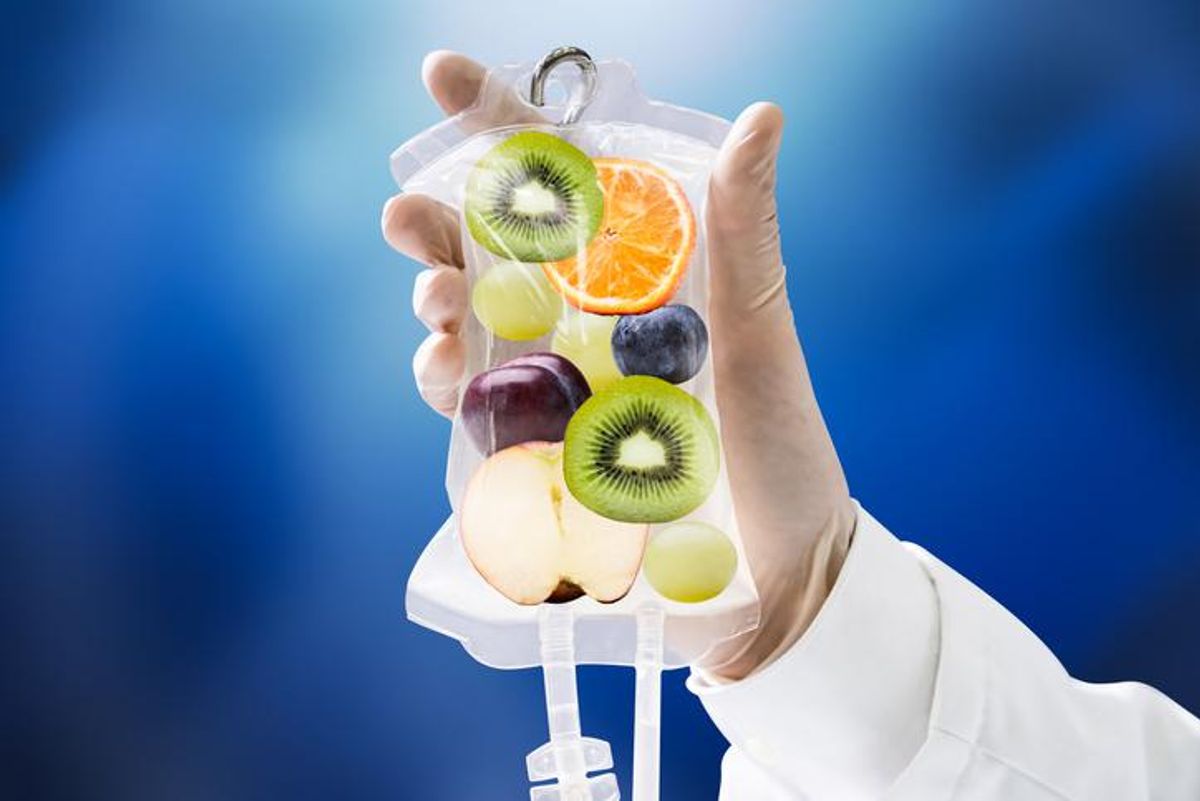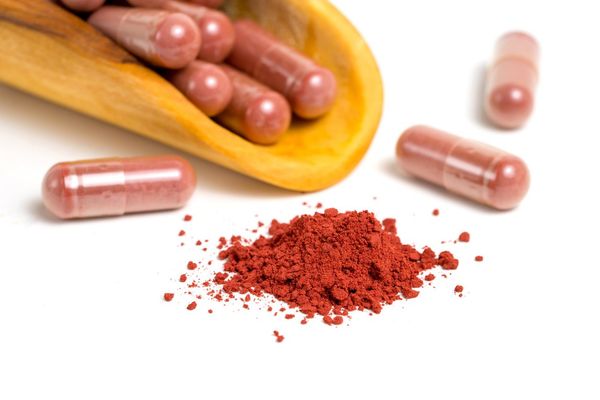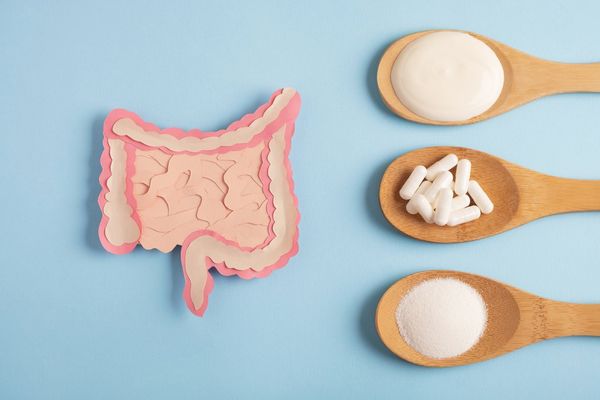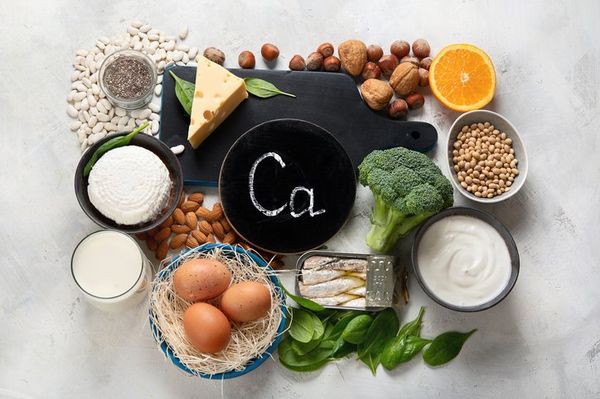Have you seen celebrities boasting about the benefits of vitamin and mineral infusions on social media? Also known as hydration therapy or IV therapy, these infusions deliver high quantities of vitamins and minerals directly into the bloodstream using an intravenous (IV) drip.
So why are Adele, Rihanna, Madonna and many more getting these treatments — and should you consider trying this expensive service too?
We asked Dr. Lisa Larkin, an internal medicine physician and member of the HealthyWomen Women’s Health Advisory Council, to weigh in.
What are vitamin and mineral infusions?
Medical professionals have been delivering nutrients and hydration to hospital patients via IV for a long time. Now, so called drip bars, IV bars and drip lounges are popping up everywhere — making the process of getting an IV infusion as easy as getting a facial. In fact, many companies offer concierge services, coming to homes, hotels or even music festivals to perform IV therapy.
Vitamin and mineral infusion companies claim their services improve people’s skin, boost their immune systems and even help them recover from hangovers or strenuous exercise faster. Infusions typically last from 20 minutes to an hour and cost anywhere from $40 to $800, depending on the type of infusion administered.
The Myers Cocktail, which claims to improve fibromyalgia, asthma attacks, depression and migraine attacks, is one popular infusion. Named after the late Dr. John Myers, who created the infusion, the Myers' cocktail formula combines high doses of B and C vitamins, calcium and magnesium in sterile water. The specific proportions he used were never recorded, though, so Myers Cocktails are not standardized.
Glutathione is another popular infusion where patients receive a mixture of vitamins, minerals and the antioxidant glutathione, which is otherwise naturally synthesized in the body. Its advertised benefits focus on skin lightening, preventing heart disease, cancer and other neurodegenerative diseases.
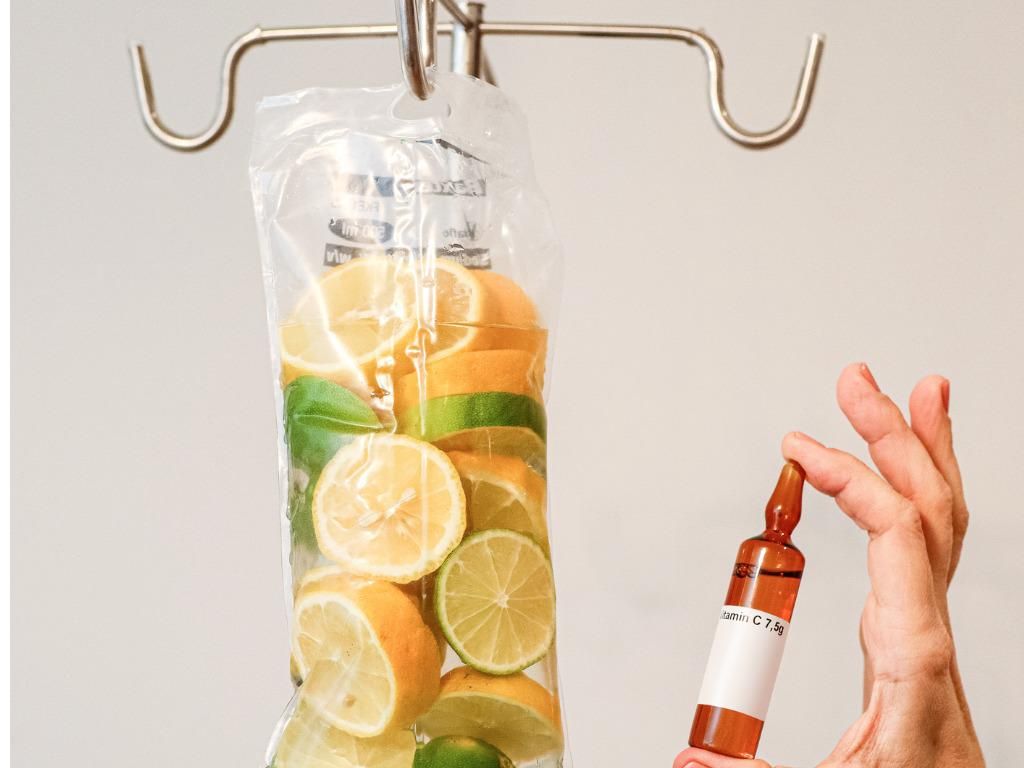
Are vitamin and mineral infusions useful?
No studies support the Myers Cocktail as a treatment for any disorder or disease. Likewise, no studies back injectable glutathione’s advertised benefits (except that it has been approved as an adjunct treatment in cisplatin chemotherapy, which is a treatment for advanced cancer of the bladder, ovaries or testicles.). In fact, there are no robust studies confirming or denying the benefits of vitamin and mineral infusions, even in patients recovering from surgeries or with malabsorption concerns.
We know that IV therapy claims to offer high doses of vitamins and minerals, but what happens if you have excess vitamins in your body? Fat-soluble vitamins (A, D, E and K) are stored in various internal organs and can be dangerous in excess. Water-soluble vitamins (vitamin C and B vitamins) exit through urine (this is why many claim vitamin therapy does nothing more than result in “expensive urine.”)
“Most of the time, in young healthy people, basically what you’re getting is a liter of IV fluid,” Larkin said. She stressed that the lack of published research and regulation make IV therapies’ claims impossible to verify. “Because hangovers are associated with dehydration, getting a liter of IV fluid may make you feel better,” she added.
Are vitamin and mineral infusions safe?
Like the supplements, vitamin infusions are completely unregulated. They fall outside of the scope of the US Food and Drug Administration (FDA), and there are no clinical guidelines for their administration or intended use.
While Larkin is open to potential — albeit, scientifically unproven — benefits of hydration therapy for hangovers, she expressed concern for the vitamin infusion participants who experience negative reactions. Because of the invasive process of piercing the skin with a needle, IV therapy inherently introduces possibly life-threatening complications, such as anaphylactic allergic reactions or endocarditis, a bacterial infection that reaches the heart valves after entering someone’s bloodstream.
While these complications are rare in sterile, medical settings, the FDA has already found that one brand’s glutathione injections had up to five times the acceptable limit of bacterial endotoxins, which put people at risk for blood infections.
“As a physician who practices, and for 30 years has seen all kinds of complications related to all kinds of things, you just know that this is not safe,” Larkin said. Without appropriate scientific studies to support these procedures, Larkin does not recommend vitamin and mineral infusions for anyone, but especially not for those who are immunocompromised.
The majority of evidence surrounding vitamin infusions is anecdotal, meaning it comes from a patient’s or clinician’s experience and not from scientific data. Until scientific studies can verify the benefits of vitamin and mineral infusions and they are subject to regulation, all we have are unconfirmed claims.
Maybe the popular adage, “If it’s too good to be true, it probably is” can offer some tried-and-true guidance.

